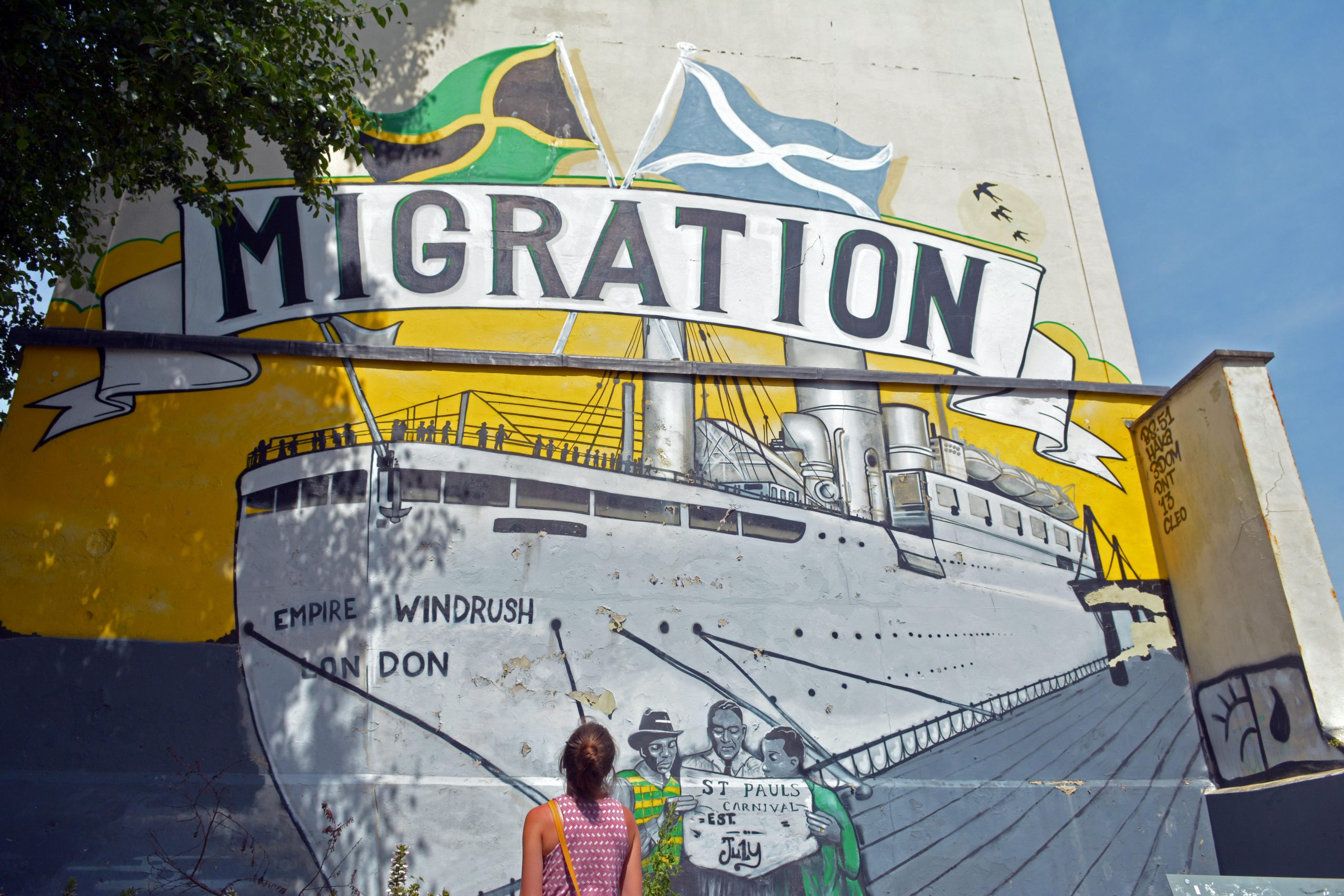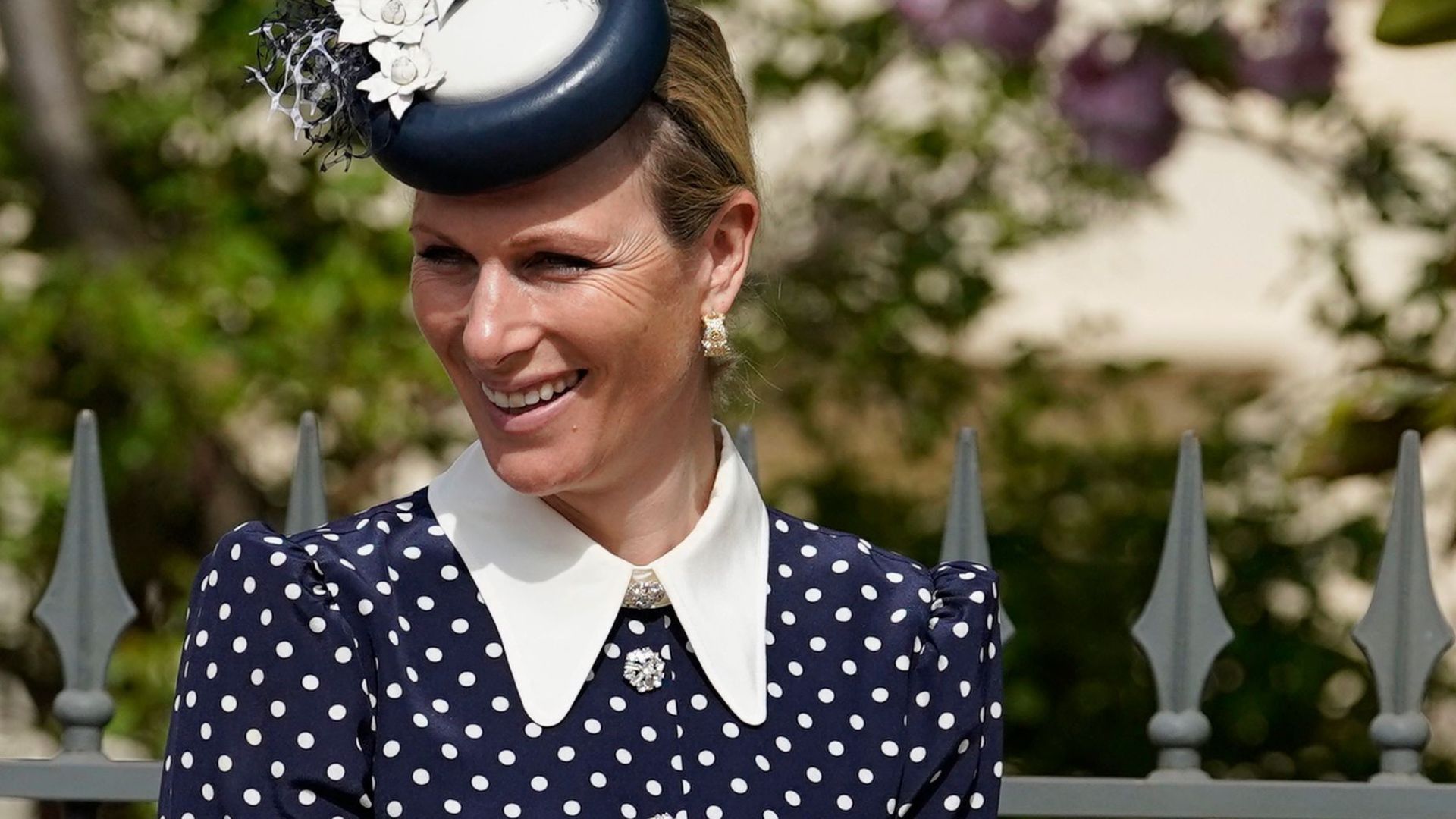Who are the Windrush Generation? BBC's Sitting In Limbo tells the story of the political scandal
You can watch it now on BBC iPlayer.


BBC One’s new memoir Sitting in Limbo, described as “harrowing”, “heart breaking” and “tenderly told”, recounts the Windrush Scandal from the point of view of one of its victims.
It features ex-Casualty star Patrick Robinson as Anthony Bryan, a Jamaican man who was unjustly detained by the Home Office because he applied for a British passport almost 50 years after coming to the UK.
What is Sitting in Limbo about?
Anthony Bryan is a painter and decorator who in 2015, after living in England since 1965, wanted to fly to the Caribbean to see his mother who had retired there.
So he applied for a passport and as a result, lost his job and his home, his right to use the NHS and any entitlement to a state pension, despite working his entire adult life. Anthony was eight years old when he was invited, along with his family, to move to England and now at almost 60 years old, he was forced to go back to Jamaica – a country he hadn’t been to in 52 years.
https://www.youtube.com/watch?v=1brHDPtSgZo
What has since become known as the Windrush Scandal only made headlines in the newspapers in 2018 after a succession of campaigns by charities and ambassadors to the UK from the Caribbean and a series of articles published by the Guardian.
It has become a integral part of the movement against racism in the UK, calling for justice by those wrongfully deported by the government.
Sign up for the woman&home newsletter
Sign up to our free daily email for the latest royal and entertainment news, interesting opinion, expert advice on styling and beauty trends, and no-nonsense guides to the health and wellness questions you want answered.
Who are the Windrush Generation?
In 1948, UK governments passed the British Nationality Act, which gave legal citizenship and the right of settlement in the UK to all those living in what were once British colonies. After World War Two, to make up for loss of labour, the governments encouraged mass immigration and launched successful campaigns in African-Caribbean countries, encouraging people to make the trip.
The Windrush Generation are those almost half a million people who came to the UK at the time. They were integral in building Britain back up after World War Two, as industries such as British Rail and the NHS hired almost exclusively from Jamaica and Barbados.
As these migrants had the same rights as those born in the UK through the 1948 law, they weren’t given (nor needed at the time) any documents to prove their legal status. Changes to the law throughout the 1970s still did not require them to have any documentation either.
What is the Windrush Scandal?

Changes later made to curb immigration dictated that anyone who came to the UK from one of the Commonwealth countries before 1973 had the legal right to remain in the country, unless they left for a period of more than two years.
In 2012, former Prime Minister Theresa May was Home Secretary. She launched a “hostile environment policy”, saying at the time, “the aim is to create, here in Britain, a really hostile environment for illegal immigrants”.
The Windrush Generation weren’t required to have any paperwork to prove their legal status in the UK, and the little documents they did have were landing card slips which recorded their arrival into the UK. The Home Office destroyed many of these in 2009.
Despite being warned as early as 2013 that the Windrush Generation were being wrongfully targeted by the Home Secretary’s new policy, it was only in 2018 that the government admitted that some Windrush migrants may have been deported back to the Caribbean by mistake.
Along with the 83 people who were forcefully deported, many other members of the Windrush Generation were threatened with deportation, denied their legal rights and detained. Many of these came to the UK before 1973 or were actually born in the UK.
What has happened since then?
In 2018, the scandal led to the resignation of Amber Rudd, the Home Secretary at the time when the deportations became public knowledge. Both herself and Theresa May claimed they didn’t know it was happening.
In March of this year, a report was published called the Windrush Lessons Learned Review. Wendy Williams, Her Majesty’s Inspectorate of Constabulary, conducted the review and she said the scandal was “more than a case of bureaucratic bad luck. It makes it a profound institutional failure. The way members of the Windrush generation were treated was wrong. They had the right to be in the UK.
“I have been provided with no positive justification for why they were treated in the way they were or why the department did not detect sooner that there would be a discrete group likely to be detrimentally affected by the hostile environment measures.
READ MORE:These are the bestselling books about racism you can read right now
“They [the Windrush generation] were not present unlawfully in the UK and should not have been, however unwittingly or unintentionally, swept up in measures aimed at those that were.”
Much like Anthony Bryan himself in Sitting in Limbo, many of those deserving compensation for their mistreatment have yet to receive any.
Written by Anthony’s brother, BBC One’s Sitting in Limbo dramatises his story of this scandal. From being dragged out of bed in the middle of the night and taken to a detention centre to being interviewed relentlessly over his legal status and his eventual freedom, Sitting in Limbo reveals the little known human implications of the Windrush Scandal.
How can I watch Sitting in Limbo?
After airing on BBC One on Monday June 8, Sitting in Limbo is now available on BBC iPlayer.

Grace Walsh is woman&home's Health Channel Editor, working across the areas of fitness, nutrition, sleep, mental health, relationships, and sex. She is also a qualified fitness instructor. In 2025, she will be taking on her third marathon in Brighton, completing her first ultra marathon, and qualifying as a certified personal trainer and nutrition coach.
A digital journalist with over seven years experience as a writer and editor for UK publications, Grace has covered (almost) everything in the world of health and wellbeing with bylines in Cosmopolitan, Red, The i Paper, GoodtoKnow, and more.
-
 Remember Zara Tindall's polka dot Easter dress? It's spot on for special occasions - and we can't believe it's reduced
Remember Zara Tindall's polka dot Easter dress? It's spot on for special occasions - and we can't believe it's reducedJust RSVP’d to a wedding? Her dress from 2022 can be yours
By Matilda Stanley
-
 This 5-minute workout can help build strength and flexibility if you follow one rule, a new study shows
This 5-minute workout can help build strength and flexibility if you follow one rule, a new study showsA 5-minute workout might sound like nothing, but it can have major benefits for your health, the study shows, with participants seeing changes in one month
By Grace Walsh